Marshal Zhukov's favorite women
Categories: Celebrities | History | World
By Pictolic https://pictolic.com/article/marshal-zhukovs-favorite-women.htmlZhukov's private life is ambiguous. She was stormy, confused, happy, and tragic. Despite the black-and-white Soviet principles and public discussions of his moral character, Zhukov was not afraid to live as his loving male heart suggested…
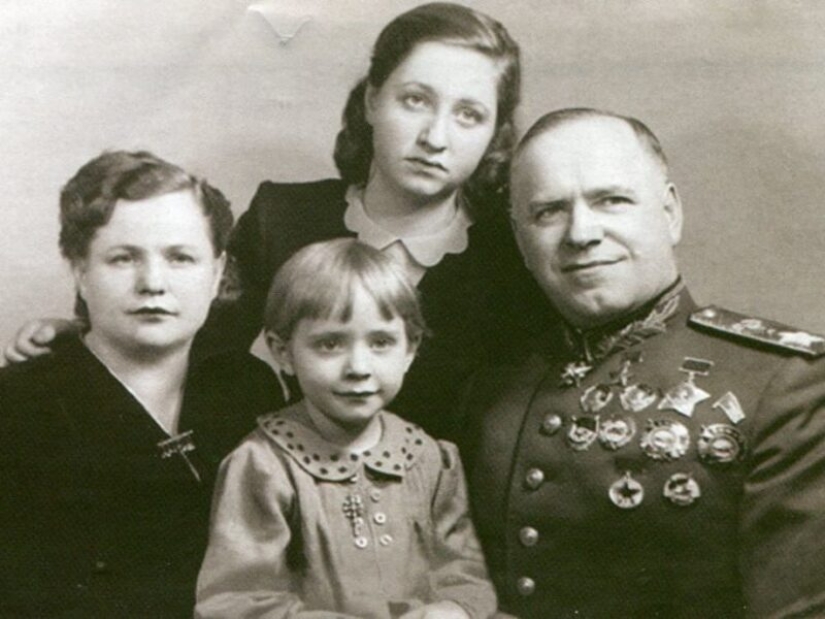
Fate raised him to the very pinnacle of glory and threw him into undeserved disgrace, it generously bestowed on him the love of the people and the hatred of his enemies. They put up monuments to him for his brilliant generalship talent and poured mud on him for allegedly fighting not with skill, but with numbers. But, no matter how anyone tries to rewrite history today, Marshal Zhukov's services to Russia are indisputable.
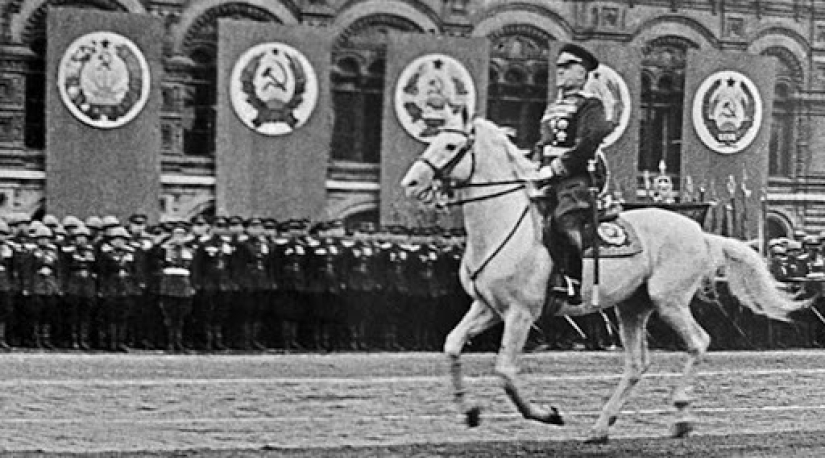
He was and remains a national hero, whose name is on a par with the legendary generals Suvorov and Kutuzov. He is the man who defeated Hitler.
But the further the Great Patriotic War goes, the more obvious it becomes that Georgy Konstantinovich Zhukov was not only a great marshal of Victory, repeatedly cast in bronze, but also an ordinary earthly person who is never one-color. That's probably why there's still a lot of controversy surrounding his name.
Zhukov's private life is also ambiguous. She was stormy, confused, happy, and tragic. Despite the black-and-white Soviet principles and public discussions of his moral character, Zhukov was not afraid to live as his loving male heart suggested.
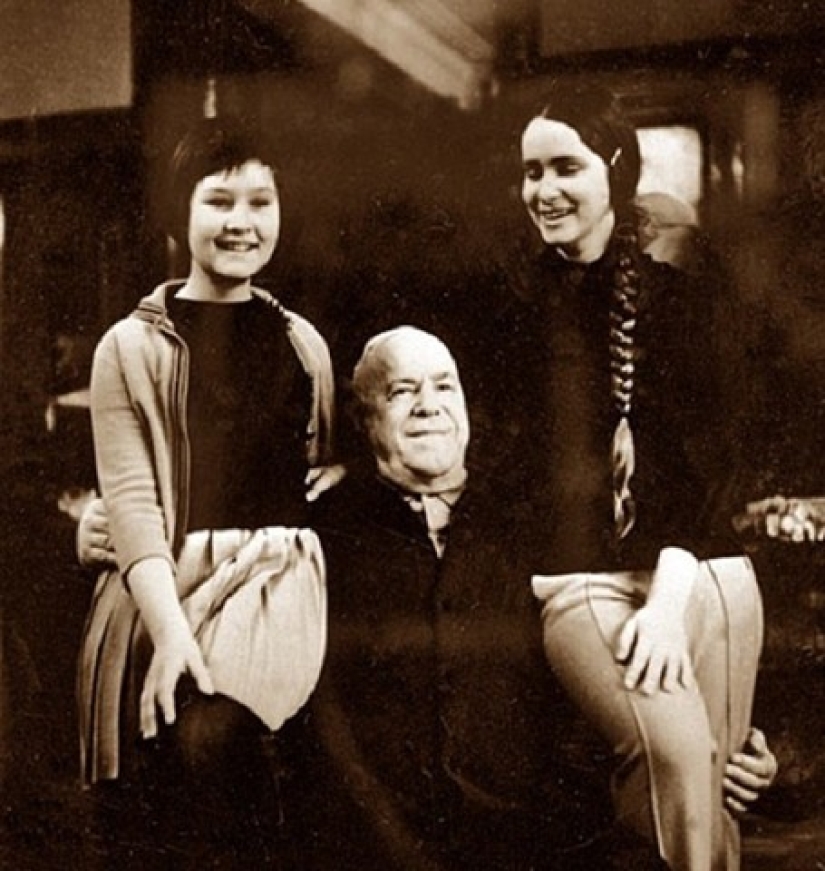
Two official marriages, several relationships on the side, eight years of life for two families and four daughters, the relationship between which was not easy before his death, and after.
And although they all still bear their father's surname, they were never able to peacefully use it as a great inheritance. And all because one of them – the illegitimate Margarita-immediately after Zhukov's funeral began to flaunt her father's name excessively. The irony is that for the first 17 years of her life, she had a completely different last name.
Zhukov nevertheless officially recognized Margarita, provided her with a Moscow apartment, and even mentioned her in his will.
Although she had never lived under the same roof as the legendary marshal. That did not prevent her from traveling around the world after Zhukov's death with stories about the life of the great father. And 13 years ago, Margarita also created the public fund "Marshal Zhukov".
Two daughters from Zhukov's first marriage, Era and Ella, initially tried to fight with a too quick relative, wrote letters to the authorities that she was making up tall tales. But they couldn't stop her. Now they don't even want to hear about it.
The same opinion is shared by Zhukov's younger daughter Maria. In a conversation with me, she immediately cut off:
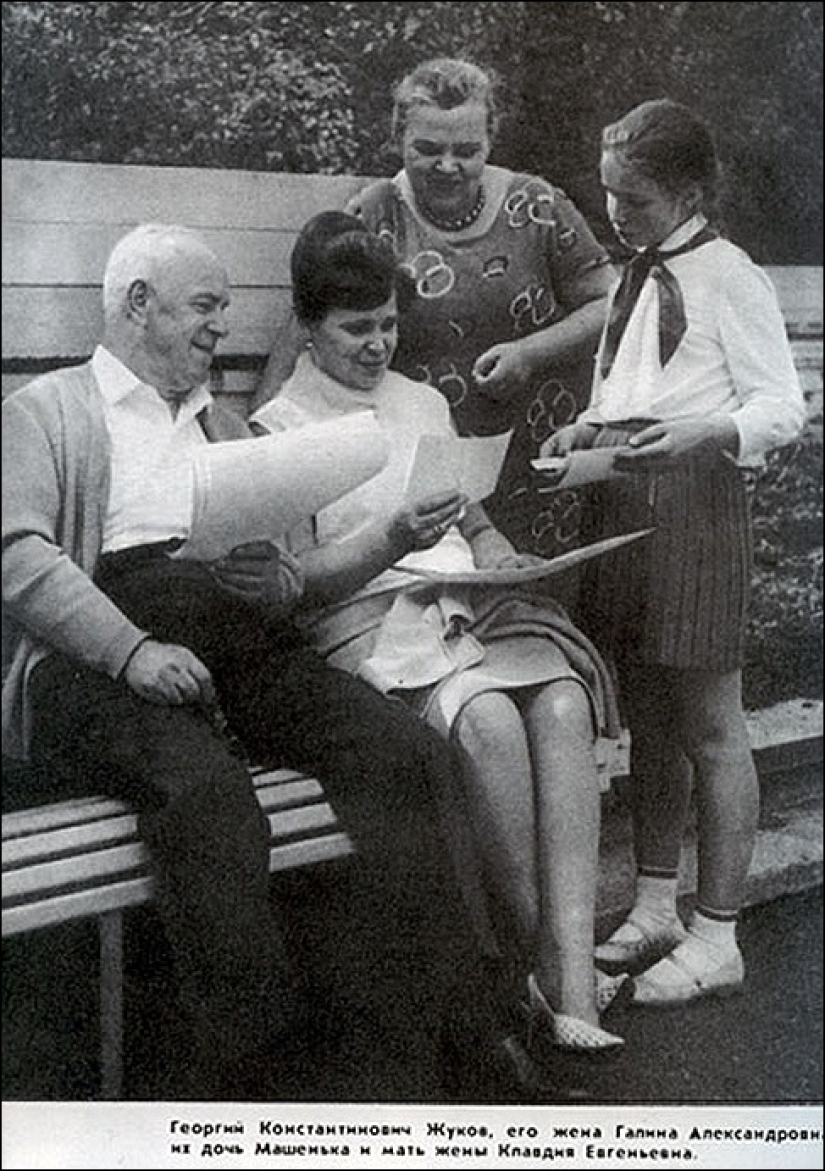
For Maria herself-Zhukov's beloved daughter-life was also not easy. In the year of her birth, in 1957, her father was still married to his first wife, Alexandra Dievna. He was able to get a divorce only in 1965. Immediately after that, the 69-year-old marshal finally married Maria's mother, Galina Semyonova, whom he met and fell in love with in the early 50s in Sverdlovsk. She was 30 years younger than him.
The first wife, who tried to keep her husband in any way, including letters to the Central Committee, to Khrushchev, could not come to terms with the painful loss. Three years after the divorce, she died of a stroke.
Galina was destined to become the last and (as some biographers of Zhukov write) the strongest love of the marshal. However, having given him great happiness in his declining years, fate mercilessly took him away in the end. In 1973, Galina died of cancer. Six months later, Zhukov himself passed away. The next day, Maria was only 17 years old.
And two years ago, Maria Zhukova, as her father once predicted, wrote a book and called it " Marshal Zhukov – my father." The book was published in the publishing house of the Sretensky Monastery, where Maria works as a literary editor. By the way, the sisters evaluate Mary's coming to God in different ways. Era and Ella-with understanding, Margarita-with sarcasm:
Meanwhile, Maria Georgievna drew a completely unexpected – God – blessed-image of Zhukov. And in the annotation to the book, you can read that " the great commander managed to preserve the heart of an Orthodox Christian in godless times."
A few days before the Victory Day Parade, Zhukov arrived in Moscow from Berlin. At that time, it was already known that Stalin had appointed him to host the first post-war parade.
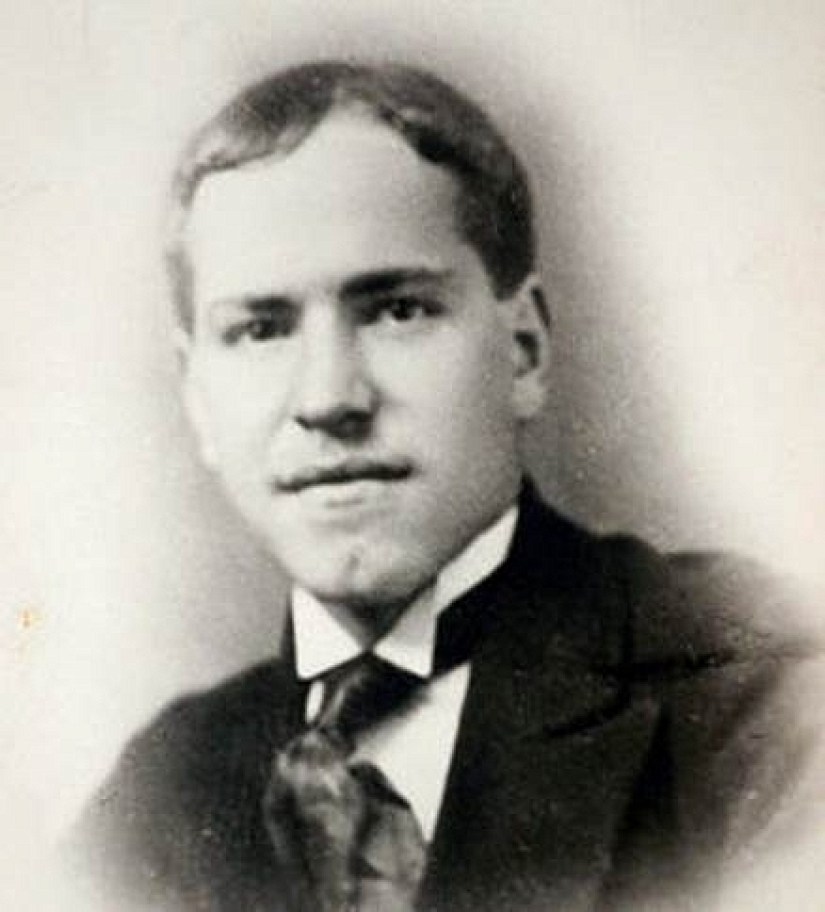
And Zhukov himself, despite the fact that he was an excellent cavalryman and in his youth won many equestrian competitions, went to train in the arena. The marshal adjusted to the horse named Idol, on which he galloped along the cobblestones of Red Square.
During the war, Marshal Zhukov's authority in the army and among the people was unprecedented. This talented commander was both loved, feared, and idolized at the same time.
Zhukov – Chief of the General Staff, member of the Supreme Command Headquarters, First Deputy Supreme Commander, Commander of the Leningrad, Western, 1st Ukrainian, 1st Belorussian fronts. It is impossible to overestimate what this legendary commander did for Victory.
He was awarded the title of Hero of the Soviet Union four times, was awarded two higher orders of Victory, six Orders of Lenin and other awards. During the war, the Supreme Commander-in-Chief Joseph Stalin in his orders 41 times declared his gratitude to him.
On May 9, in the 45th, the name of the marshal was forever written in history. Then, on the outskirts of Berlin, Karlshorst Zhukov put his sweeping signature under the Act of Unconditional Surrender of Nazi Germany. Finally, the Supreme Commander instructs Zhukov to take the Victory Parade instead of himself.
But less than a year after the Victory Parade, Zhukov was accused of "bonapartism" and removed from the post of Commander-in-Chief of the Land Forces. The marshal was first exiled to Odessa-the commander of the troops of the Odessa military district, and then even further-to the Urals. Until the death of Stalin, he remained in the post of commander of the Ural Military District.
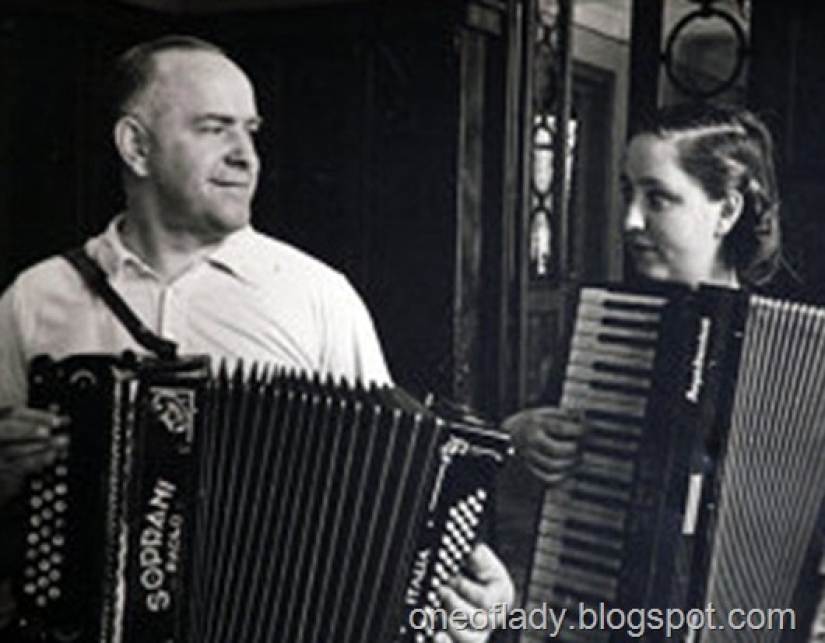
She added that, according to her father, Stalin at the beginning of the war could not hide simple human weaknesses. He was confused, often irritated from impotence, and his incompetence in military science was felt.
.
According to the investigation, Air Marshal Novikov testified that Zhukov sought to bring the top military leaders closer to him, belittled the leading role in the war of the Supreme High Command, while emphasizing his role.
The Zhukovs ' apartment and dacha were searched. Era Georgievna says that they lasted for days. People from the law enforcement agencies were looking for something, rummaging through personal belongings, making notes in their papers.
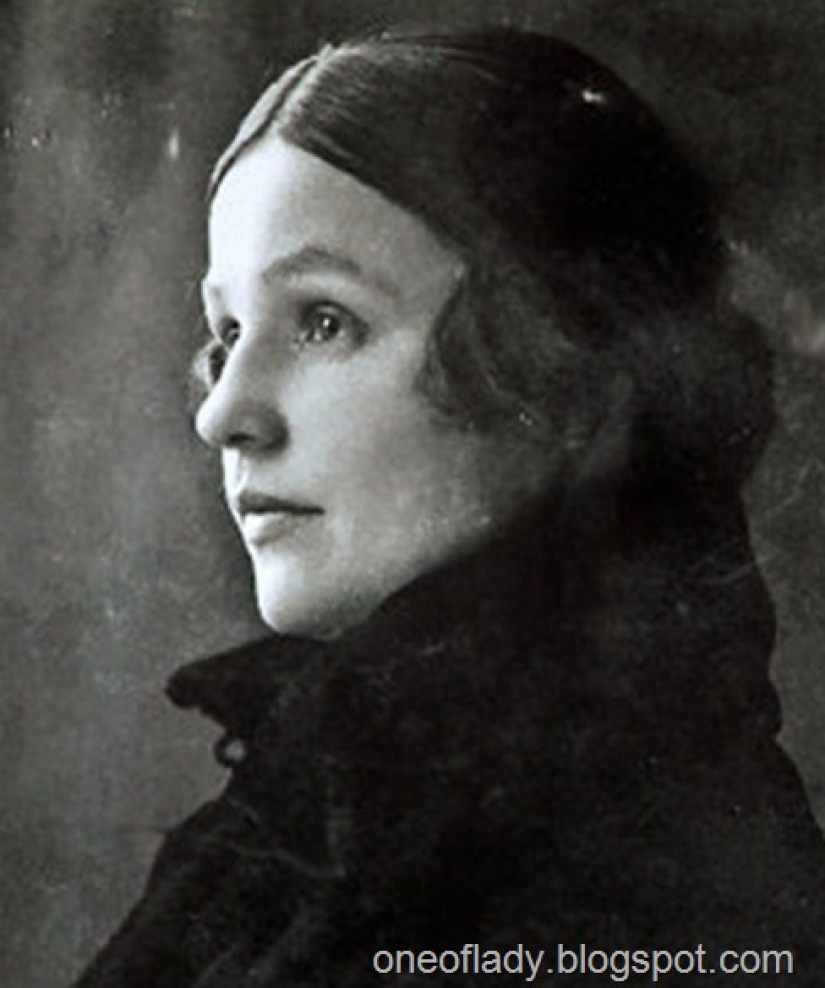
After the Victory Parade, Zhukov gathered his fighting friends at the dacha. Among the guests was Lydia Ruslanova and her husband, General Vladimir Kryukov. Zhukov met Ruslanova during the war. Lydia Andreyevna, as part of the front-line brigades, often went out with concerts to the soldiers.
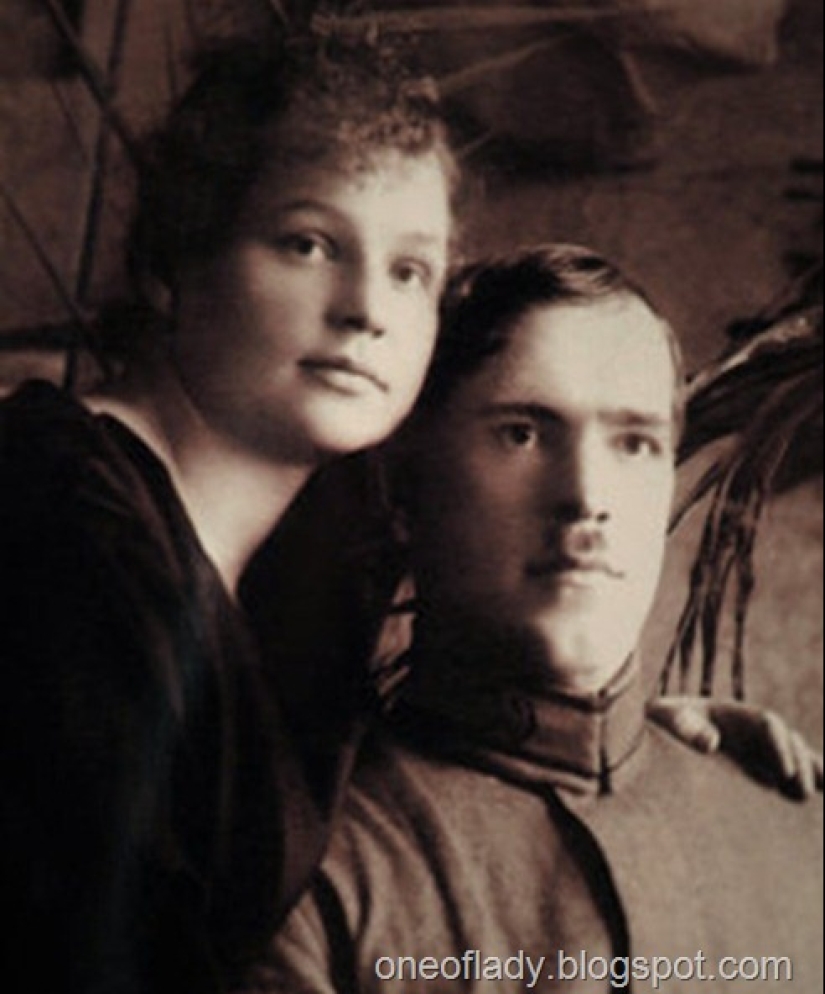
When it was Ruslanova's turn at the festive table, she proposed a toast not to the generals, but to their wives.
This brooch, according to Era Georgievna, once belonged to Natalia Nikolaevna Goncharova. Ruslanova was sold it only after she said that she wanted to give it to Marshal Zhukov's wife.
The Queen of Russian song Lydia Andreyevna often visited the marshal's house. Zhukov loved her performance of "The Steppe and the Steppe around", "When I had golden mountains", "Valenki". Once Zhukov and Ruslanova sang something together. Field of what Ruslanova said:
She added that her mother Alexandra Dievna Zuikova, the marshal's wife, also liked the same song.
In the Civil War, when Zhukov commanded a detachment of Red Army soldiers who fought with Antonov's gangs, his detachment ended up at Anna station. This is in the Voronezh Province. There, in one of the houses behind the stove, he saw his future wife Alexandra. Alexandra, along with her sister Nadezhda, hid from the Reds – their older brother Alexey served with the Whites.
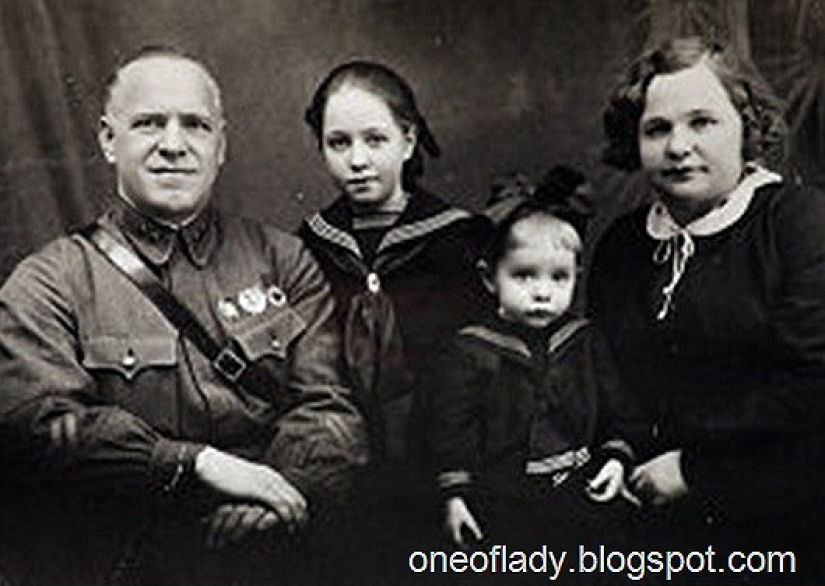
Before meeting Zhukov, Alexandra Dievna was a teacher in one of the village schools. Georgy Konstantinovich enlisted a competent girl in the headquarters of the detachment as a clerk. In the 22nd year, they got married, however, for frequent moves, the documents were lost. The second marriage of Alexander Dievna and George Konstantinovich was already concluded in Moscow in November of the 53rd year.
Military nomadic life could not but affect the health of Alexandra Dievna. In the 20th year, she lost an unborn child. After that, the Zhukov family had no children for a long time. Er's daughter was born in the 28th.
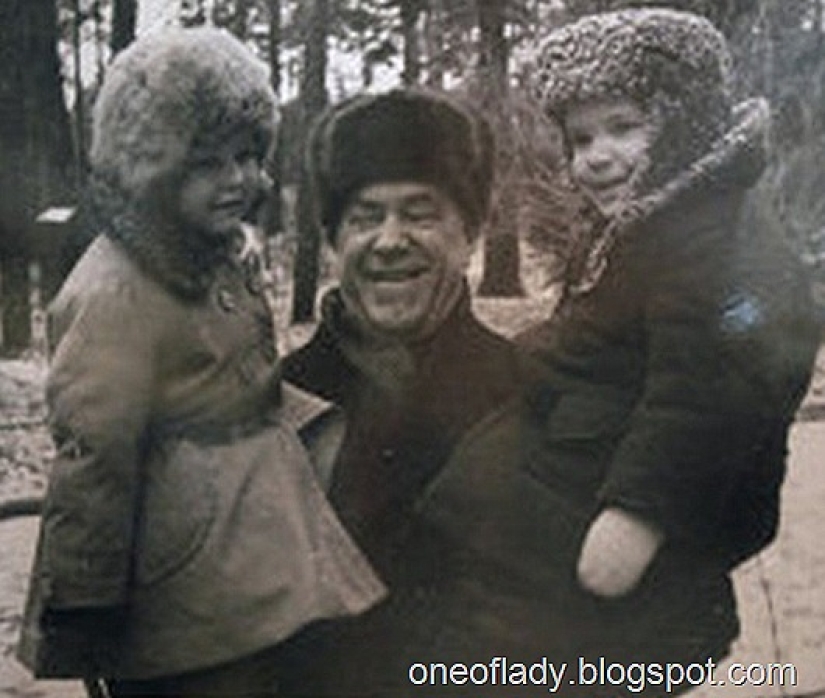
Era Georgievna was born in Minsk. In Belarus, almost the entire pre-war service of Zhukov was held. In the 37th in Slutsk, Zhukov's second daughter Ella was born, he then commanded the cavalry corps. The note that Zhukov gave to his wife in the maternity hospital has been preserved:
In the letters addressed to his wife, Zhukov called her Shura, Shurik, and always signed Georges. Alexandra Dievna, according to her daughter, devoted her whole life to the marshal.
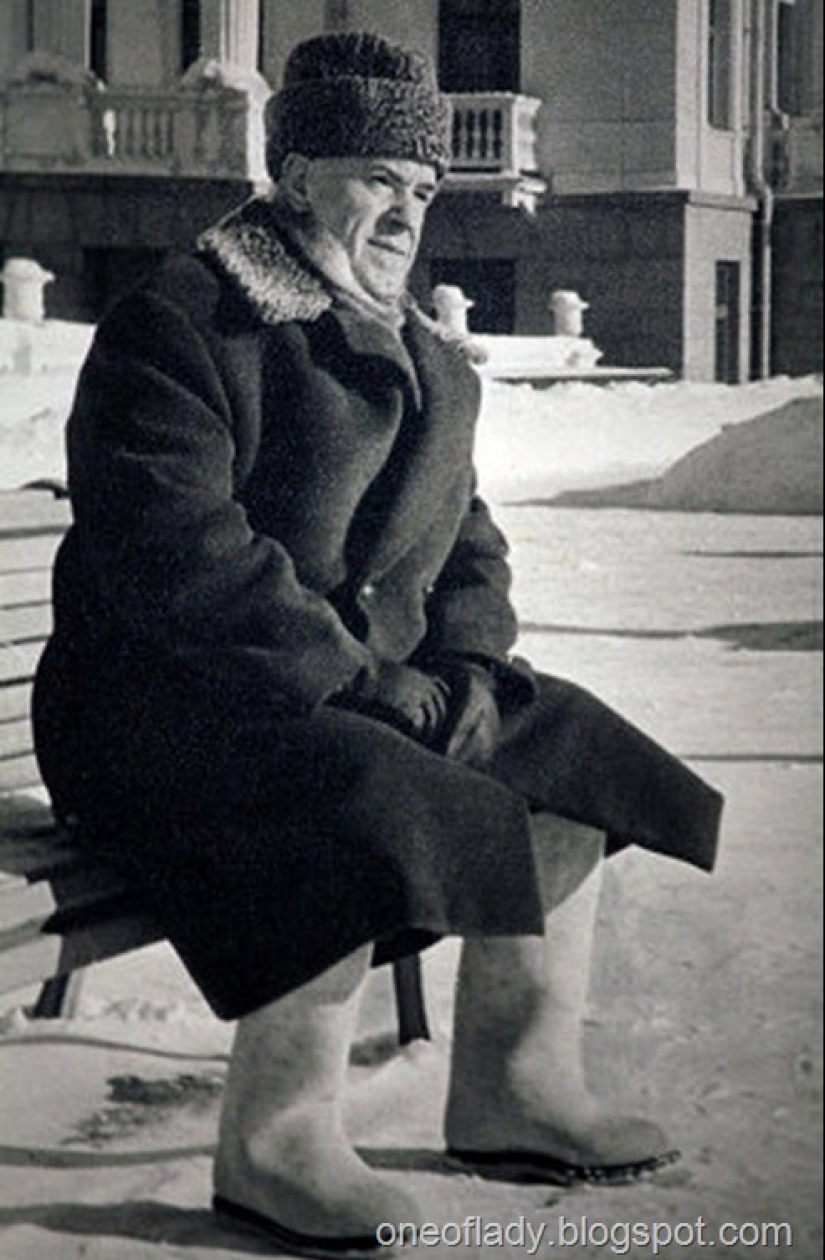
Alexandra Dievna and Georgy Konstantinovich lived together for 40 years.
Doctor Galina Semenova and Marshal Zhukov met back in the 50s in Sverdlovsk. Zhukov then commanded the Ural Military District. And Galina worked in this city on distribution after graduating from the Kazan Medical Institute.
She was 30 years younger than Zhukov. In ' 57, they had a daughter, Masha. They were married in 65, after Zhukov officially divorced Alexandra Zuikova.
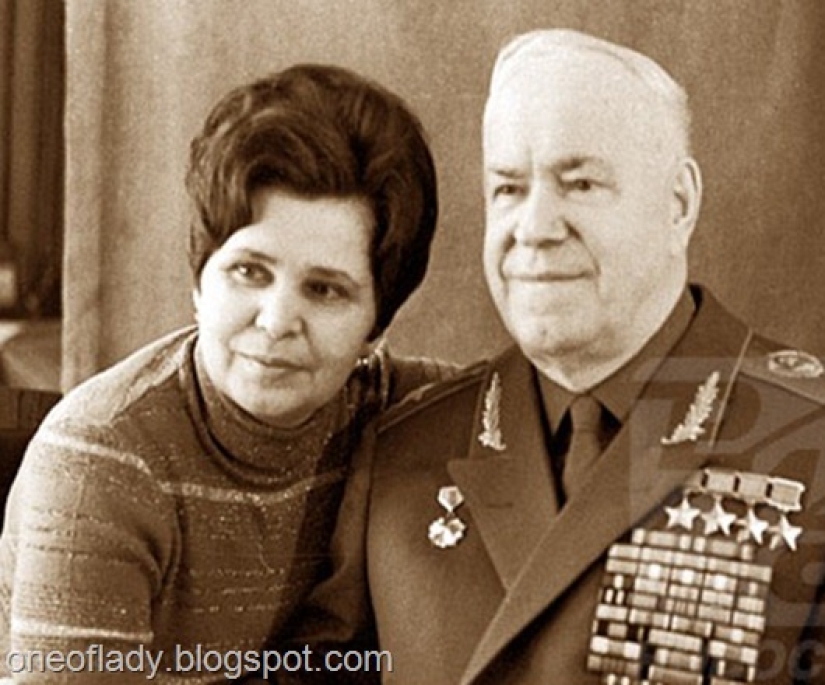
And in the Civil War, and in the Great Patriotic War, and in the years of triumph, and the years of disgrace, Alexandra Dievna was always a support for her husband.
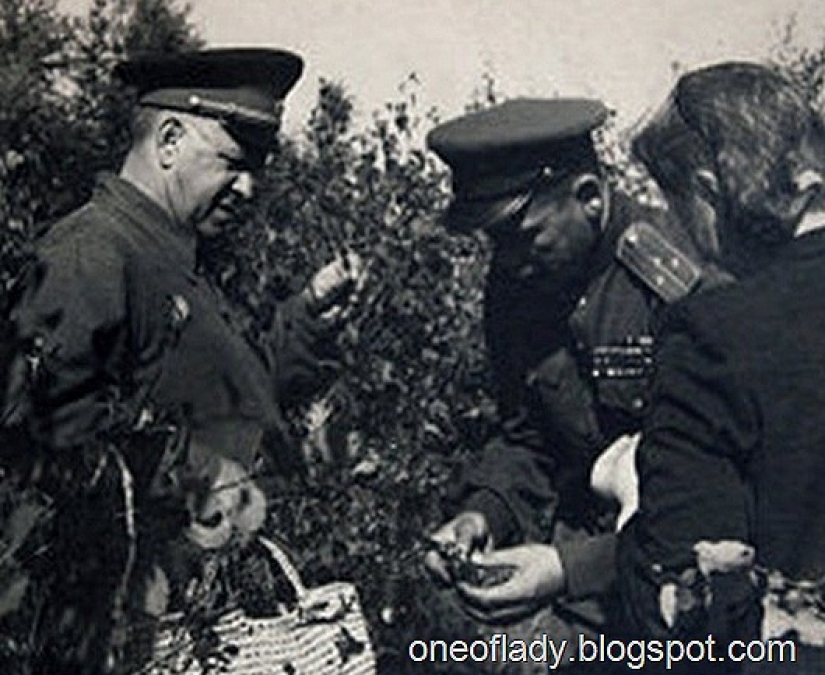
Zhukov, when talking about his family, liked to repeat:
After the death of Stalin, Nikita Khrushchev became the first Secretary of the Central Committee of the CPSU. Under him, Zhukov was returned from Sverdlovsk to Moscow and appointed to the post of First Deputy Minister of Defense.
In the 55th Zhukov was appointed Minister of Defense, but two years later he was removed from all posts, and in the 58th he was completely dismissed.
When Zhukov appeared on the threshold, he said only three words:
According to the daughter, the marshal, for several days drank handfuls of sleeping pills, slept and did not communicate with anyone. She added that it was unbearable to look at Zhukov, a strong man with an iron will, in those days.
While in retirement, Zhukov, who had already suffered a heart attack, stroke, in those years he still suffered greatly from inflammation of the trigeminal nerve, did a great job. The disgraced marshal wrote a book about the war – "Memories and Reflections". The book began with the words: "I dedicate it to the Soviet Soldier. G. Zhukov".
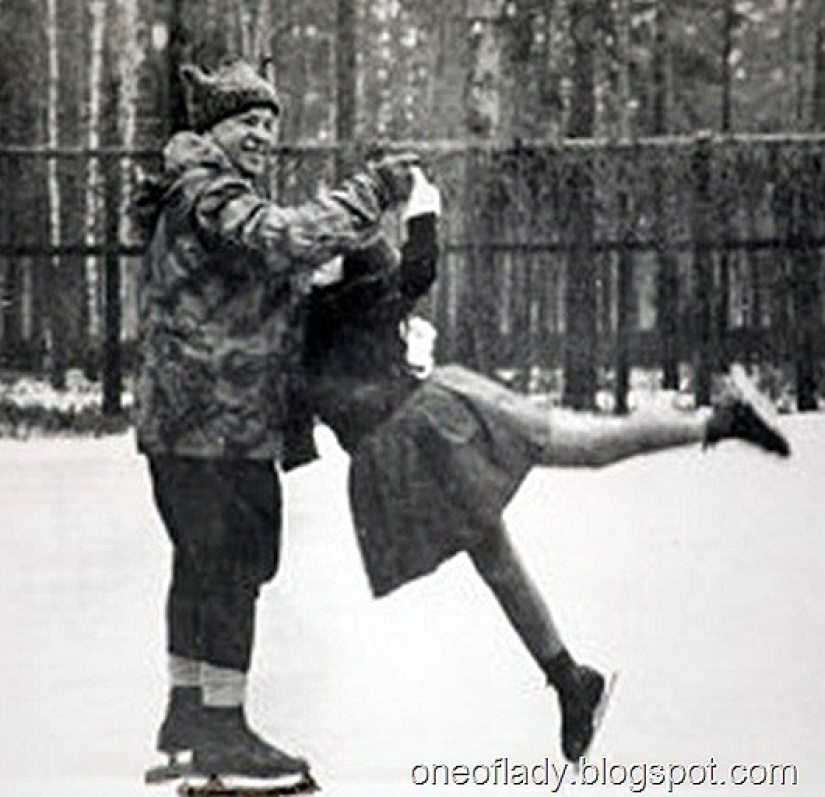
First, the marshal wrote "to the table", then he received an offer from the publishing house of the Press Agency "Novosti". When Zhukov was working on the book, the Main Political Directorate of the Soviet Army and Navy demanded that he write a special chapter on political instructors and commissars.
In it, Zhukov had to mention the name of General Secretary Leonid Brezhnev. To this suggestion Zhukov replied:
In Moscow, then there was a joke that the marshal's daughters, Era and Ella, liked to tell their father:
Once Zhukov was asked if he dreamed of a son. Zhukov replied:
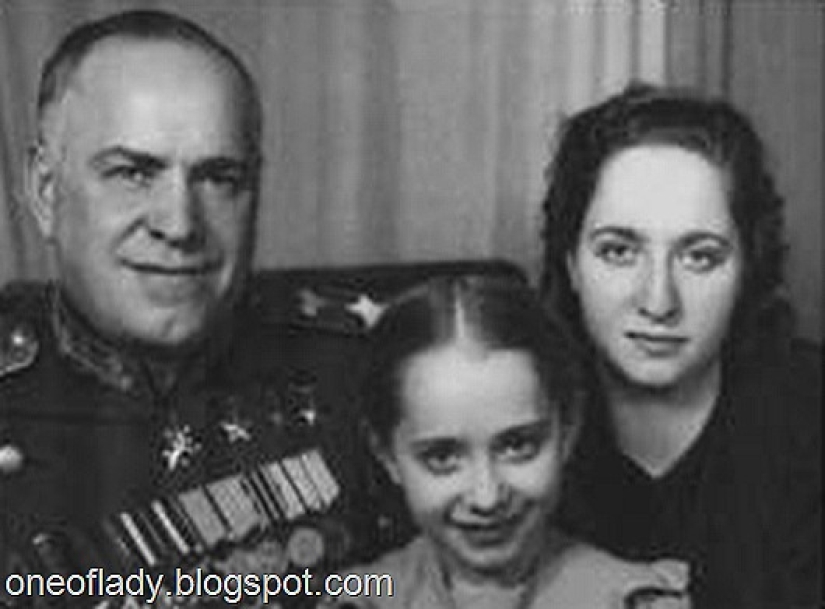
None of the marshal's daughters followed in their father's footsteps. Their chosen professions are completely peaceful. Era Georgievna, now 82 years old, is a graduate of the MGIMO Faculty of Law, Candidate of Legal Sciences. For more than forty years, she worked at the Institute of State and Law of the Russian Academy of Sciences.
The youngest daughter of Marshal Zhukov and his first wife, Ella, also graduated from MGIMO. She devoted her life to radio journalism. In the Radio Committee on Pyatnitskaya Street, Ella Georgievna worked for more than half her life until an incurable illness left her with no choice. In 2010, Ella Georgievna died.
Era Georgievna keeps a folding leather mini-photo album at home. At the very beginning of the war, in one of the workshops in Moscow, according to Zhukov's special order, four of them were made-for each family member.
In the photos inside the album: Marshal's wife Alexandra Dievna, daughters Era and Ella, and George Konstantinovich himself. In this photo, Zhukov is 44... the future marshal still has everything ahead of him: the capture of Berlin, the signing of the Act of Surrender, and the Victory Parade.
He rested very little. It is known that during the Moscow battle Zhukov did not sleep for 11 days. And when the troops went on the offensive, he went to bed and could not be woken up, even when Stalin called. The commanders, including Zhukov, worked late in the war. And why?
Yes, because Stalin had such a daily routine. He only left the Kremlin at three in the morning. Then, at the second stage of the war, Zhukov told Stalin that we were not working with you correctly.
And indeed, all the military leaders and the general staff, including, from such a routine, were exhausted to the point of impossibility.
Then Stalin said that he would not disturb anyone at night. Indeed, he did not disturb anyone else during the night. Sometimes, when there was a small window in the business, the marshal liked to be distracted and spend time in nature. Sometimes they even managed to hunt for a short time. Zhukov was generally a very attentive and caring person. He never forgot his children and family.
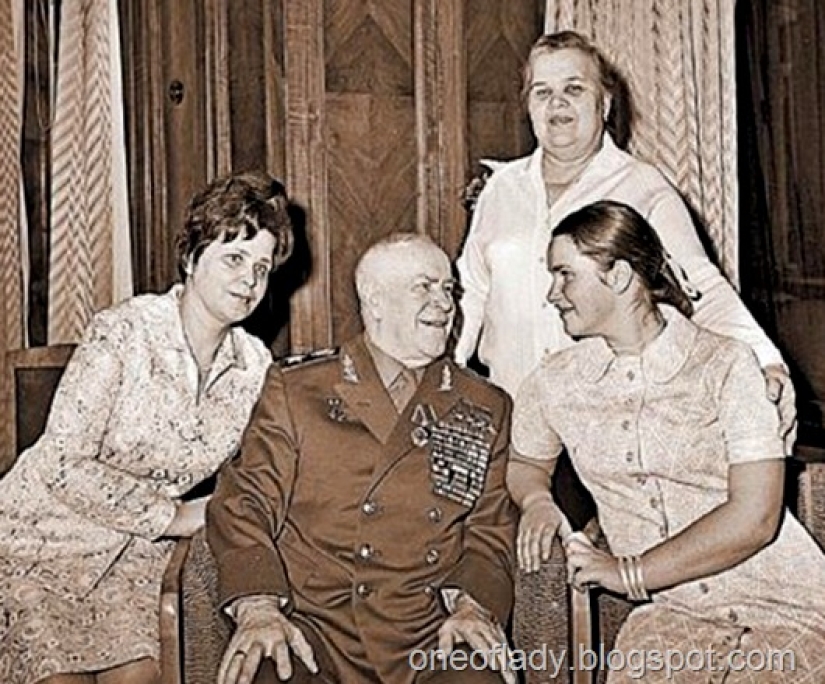
He was also a very obliging person. Later, when he was removed from all cases, and he began to write a book about the war, "Memories and Reflections", having signed a contract with the APN, the marshal tried to strictly fulfill the contract and deadlines, never delaying writing a book, even though he was seriously ill.
Keywords: History | Celebrities | Women | The world | The USSR | Fate | The Great Patriotic War
Post News ArticleRecent articles

It turns out that bananas are different – yellow, blue, red. I can't believe that somewhere is growing a miracle. Provide an ...

Our world is so big and multifaceted that in every corner you can see interesting and unique things. And we're not just talking ...
Related articles

Ladies, no offense, but men are better at navigating the terrain than you are. Men, do not be offended, but ladies are better than ...
American photographer Doug Menuez (Doug Menuez) for 15 years, sealing in the photos of the so-called "Golden age" of Silicon ...

It just so happened that the leading role in politics, science and public life are men. At the same time as women are aiming for is ...

You can find anything on the Internet. Sometimes, among the huge flow of information, you come across real gems. Of particular ...